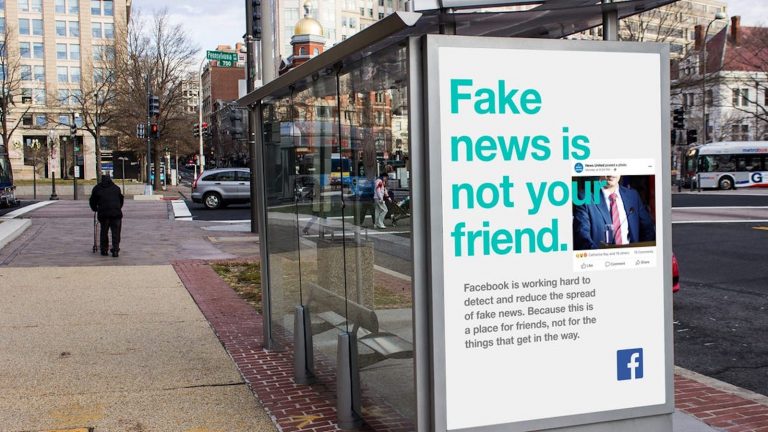Two years ago, in response to a superfluous report on Facebook censorship authored by a forgettable former U.S. senator (Jon Kyl anyone?), columnist Matthew Walther wrote something profound on America’s liberal-market economy: “there is no hard-and-fast distinction between the so-called public and private sectors.” Such a statement should ring the ideological tocsin between any libertarian’s ears. No distinction? Between the U.S. leviathan and the local mom-and-pop greengrocer? The Social Security Administration and your boomer father’s defined benefit plan from Coca-Cola? FEMA and Waffle House? the USPS and FedEx?
Not one whit’s difference between those dual antitheses of bureaucratic sloughs and on-the-trot entrepreneurial nimbleness? Is Walther woo-woo wacky in the head?
But he doesn’t let his argument’s logical trail cul-de-sac there; Walther follows it to its Marxian conclusion: “‘crony capitalism’… is just capitalism simpliciter.” Stop the textile chakras! Get Tim Carney on the horn! The standard libertarian syllogistic PEMDAS doesn’t result in capitalism and cronyism being equal. There’s a slash through the Gemowe lines! Ludwig von Mises made strict separation between capitalism and “corporativism” a first principle and that’s final. What free marketeer dares run afoul the gospel of Nationalökonomie: Theorie des Handelns und Wirtschaftens?
Henry Demarest Lloyd said “monopoly is business at the end of its journey” during the robber-baron heyday. But applying a 21st century aggiornamento to the capitalist motivation shows that a different kind of monopoly is pursued by modern profit-spinners: a seemingly seamless attachment to the state and its attendant protection from competition. And since the federal government has its hand in everything from chicken feed quality to fishing licenses to the launder tags on your 300-thread-count sheets, the capitalist calculation must now account for an all pervasive state. This complicates the cut-and-dry libertarian nous on private versus public bodies.
Case in point: the Biden administration’s admission that it employs online snoops who work in close harness with Facebook to dispel false or misleading information on the COVID-19 vaccines. “We’re flagging problematic posts for Facebook that spread disinformation,” said White House press parakeet Jen Psaki. Details were not forthcoming: who, exactly, is informing Facebook censors of bad info? What agency do these tattle tales work for? Are they feds, contractors, or a volunteer army of busybody grandmas cloistered away in some nondescript Northern Virginia high rise?
We aren’t likely to find out. But Facebook hasn’t denied the cahoots COVID misinfo crackdown. Even after President Biden accused the social giant of “killing people” by impeding its vax-encouragement campaign, and a Facebook spokesman responded in kind with a backbiting blog post accusing the chief exec of “finger pointing,” there’s been no unqualified denial of the collab. Biden even walked back the murder plaint, probably after the penny dropped that softsoap, not abrasion, is the best approach with a partner-in-policing-thoughtcrime.
So what does this new beautiful friendship between Washington and Menlo Park mean for libertarian theorists?
The conclusion drawn should be no different than Amazon cloud-hosting the CIA’s iniquity-packed servers, Google aiding the PLA, or Apple installing Kremlin-approved apps in Russian iPhones. Big tech made a Faustian bargain with big government; in doing so, Silicon Valley’s finest forfeited the designation “private companies.”
This un-labeling is important because of the intraideological debate on the right over the unprecedented power yielded by the Big Five. Facebook, Twitter, and YouTube disproportionately suppress, or outright silence, conservative and libertarian accounts compared to liberals (see: the 45th president of the United States). Apple, Google, and Amazon actively deplatform and digitally smother more open, conservative-appealing social media alternatives. Moreover, nationalist conservatives, who view digital connection as necessitous to modern life, want common carrier rules applied to the web’s feudal lords. The titanic tech forces are arrayed against the right, yet the right has been self-trammeled in sticking up for itself because of its belief in business autonomy—a philosophical handicap I call the “camp-of-the-saints dynamic.”
If Facebook is taking its cues from the government to mute vaccine skeptics, that complicates the “let business be business” argument. And it’s not febrile conjecture to assume the same digital proctors are scouring other social media sites to flag false or deceptive corona talk. The feds rarely stop at one when it comes to commandeering private assets for their own purposes.
Tech-skeptic Senator Josh Hawley asks that if the White House is “setting the social media monopolies’ terms of service,” then “who thinks these are still ‘private’ companies?” Would that Facebook was only muzzling accounts at the government’s behest, it would still be functioning as a private company, with imposed gagging being the price of business. But Facebook has long worked closely with public health authorities on pandemic PSAs. Uncle Sam isn’t holding a gun to Mark Zuckerberg’s head to quash all inoculation hesitancy—it’s a de facto public-private partnership.
The power of big tech’s mass algorithmization is not quite at the level of parallel rivalry with that of the state. Amazon can’t jail you and sap your bank account dry. But it can help home the Pentagon’s drones in on unsuspecting targets. Google can’t kill you; just unperson you, leaving you unable to so much as hail an Uber. Apple can’t topple a Mesopotamian dictator, but it can abet communistic oppression.
Libertarians should think twice about the tech behemoths increasingly mediating more of our lives before blindly defending them against socialistic interference. Doing so doesn’t mean taking an anti-trust sledgehammer to their accrued franchises and concessions. But it would mean looking at the symbiotic relationship between government authority and technological might not with naivety, but the same unromantic realism they apply to statist schemes.














Here in North Cakelacky the unvaccinated make strange bedfellows….
https://www.cbs17.com/news/local-news/durham-county-news/duke-health-workers-protest-vaccination-rules-23-of-employees-are-not-vaccinated/